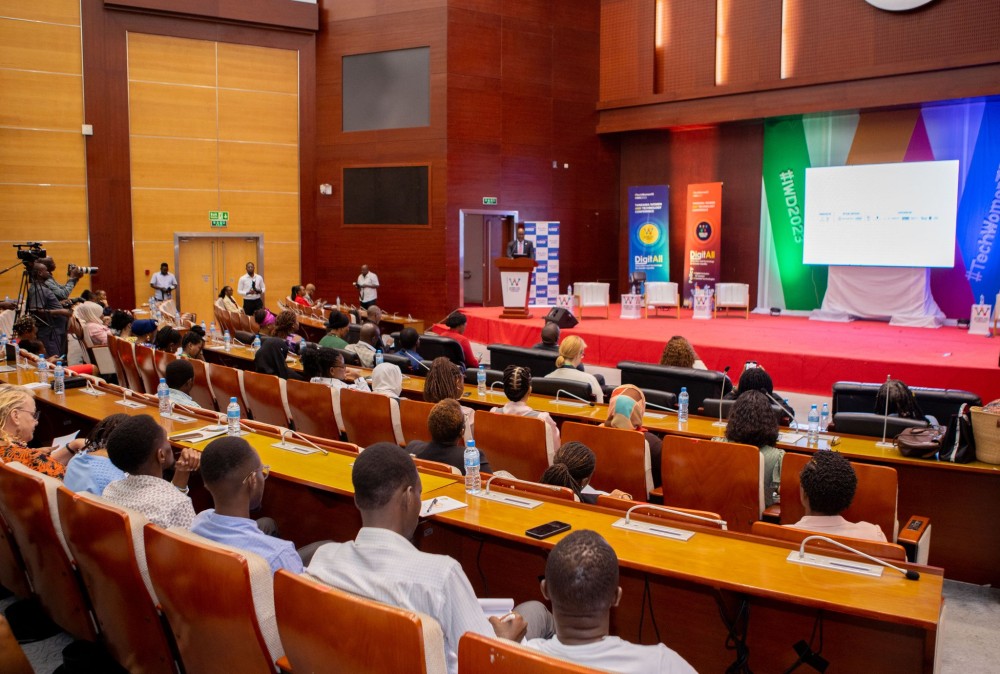The world of technology has been rapidly advancing, shaping economies and societies worldwide. However, in Tanzania, an untapped well of potential remains largely unexplored: the underrepresentation of women in the tech industry. As a digital journalist and advocate for gender equality, I have witnessed the struggles and triumphs of Tanzanian women in technology. In this article, I would like to dig deeper into the challenges that hinder their engagement in the tech sector, shed light on the societal norms holding them back, and explore the path towards a more diverse and inclusive tech landscape in Tanzania.
Gender Disparity in the Tech Industry
Tanzanian women’s involvement in tech-related fields, including software development, engineering, and leadership roles, has been alarmingly low. Presenting statistics and research on this issue is crucial to understanding the gravity of the situation.
Reports show that women make up only 20% of the tech workforce in Tanzania, which is a far cry from achieving gender parity. This underrepresentation hampers the tech industry’s potential for innovation and growth, as diverse perspectives are vital for addressing complex challenges and creating inclusive solutions.
Societal Norms and Cultural Influences
The roots of the gender disparity in Tanzanian tech lie deep within societal norms and cultural beliefs. Traditional gender roles have long confined women to domestic duties, reinforcing the perception that technology is a male-dominated domain. These norms perpetuate the idea that women lack the technical skills and abilities required for success in tech-related fields, discouraging them from pursuing careers in the industry. To make a meaningful change, we must challenge these perceptions and embrace a more inclusive outlook that encourages women to participate and thrive in technology.
Educational Opportunities and STEM Programs
The foundation of a thriving tech sector is built upon a solid STEM (Science, Technology, Engineering, and Mathematics) education. Unfortunately, girls in Tanzania often face obstacles when it comes to accessing quality education in STEM fields. Gender disparities in education persist, limiting girls’ exposure to subjects like mathematics and science, which are fundamental for pursuing careers in technology. Moreover, cultural biases and stereotypes further deter girls from engaging with STEM subjects, resulting in a significant gender gap in tech-related studies.
However, the future is bright. Numerous initiatives are working tirelessly to bridge these educational gaps and inspire young girls to pursue tech careers. Organizations like Women in Telecoms and Technology (WiTT) are at the forefront of this effort, providing mentorship programs, workshops, and scholarships to empower girls and young women in tech. Supporting such initiatives and investing in education for girls will unlock their potential and bolster Tanzania’s tech workforce.
Workplace Inclusivity and Supportive Policies
To foster gender diversity, the tech industry in Tanzania must create inclusive work environments that empower and support women. Workplace dynamics can play a pivotal role in ensuring equal opportunities for women to thrive in tech roles. Companies and organizations must proactively implement gender-sensitive policies that promote diversity, equality, and fairness.
Flexible working hours, mentoring programs, and policies that combat workplace discrimination are just a few examples of measures that can help create an inclusive tech ecosystem. Recognizing and rewarding the contributions of women in tech is equally crucial, as it encourages greater participation and leadership roles for women.
As I Recall on Tanzania Women and Technology Conference held on the 7th March 2023 at JNICC Hall, Dar es Salaam, Carol Ndosi, Executive Director The Launchpad Tanzania, from her speech, believes that the national ICT (Information and Communication Technology) policy should be revised to address the existing digital inequalities, especially concerning women’s access and inclusion in the digital sphere. They emphasize the need for conscious and deliberate efforts to bridge the gap and ensure that women have equal opportunities to access and benefit from digital technologies.
”We believe The national ICT policy should reflect conscious and deliberate efforts to address digital inequalities considering the staggering numbers. We have been insisting on policy reviews for the ICT Policy 2016 which need to take into account the current context and be more precise and specific when it comes to strategies to increase women’s digital inclusion”.

The reference to “staggering numbers” likely indicates that there are significant disparities between men and women in terms of digital access, usage, and skills. These discrepancies might be related to factors such as access to technology, digital literacy, and opportunities in the tech industry.
Success Stories
While the challenges are undeniable, it is essential to celebrate the successes of Tanzanian women who have shattered stereotypes and achieved remarkable feats in the tech industry. Their stories serve as inspiration and proof that gender does not dictate one’s capability in technology. By showcasing these role models, we can motivate young girls to pursue their tech passions fearlessly and encourage the industry to recognize and promote women’s talents.
One of inspiring figure is Amina Yusuf, a young Tanzanian engineer who designed an affordable solar-powered water pump, revolutionizing irrigation practices in rural areas. Her innovative solution exemplifies the potential impact that diverse perspectives can have on addressing pressing challenges in Tanzanian communities.
Amina, driven by a passion for technology and a desire to make a positive impact, set out to design a solution that would democratize access to water for small-scale farmers. Leveraging her engineering skills and a deep understanding of renewable energy, she developed a solar-powered water pump that could draw water from wells and rivers without relying on expensive fuel or electricity.
Her solar pump innovation was a game-changer for rural farmers, providing them with a sustainable and cost-effective way to access water for their crops year-round. With the ability to harness the abundant solar energy available in Tanzania, the pumps offered a clean and environmentally friendly alternative to conventional water pumps.
My perspective
As a digital journalist and advocate for gender equality, I have seen firsthand the challenges faced by Tanzanian women in the tech industry. Through their stories of determination, resilience, and success, I have come to appreciate the transformative power of promoting gender diversity in this field. By breaking down barriers and providing equal opportunities for women in tech, we can foster an inclusive and innovative tech sector that benefits Tanzanian society as a whole. As we continue to champion gender equality, let us remember that the journey towards progress starts with a collective commitment to unlocking the immense potential of Tanzanian women in technology.
Despite the challenges, there are a number of Tanzanian women who are breaking through the glass ceiling and making significant contributions to the tech industry. These women are role models for other girls and women, and they are proof that women can succeed in tech.
I believe that promoting gender diversity in the tech sector is essential for Tanzania’s economic growth. A more diverse tech sector will be better equipped to solve the challenges facing Tanzania, and it will be more likely to attract investment from foreign companies.
To wrap it up, Unlocking the potential of Tanzanian women in the tech industry requires collective effort and a genuine commitment to gender equality. Addressing the gender disparity in tech starts with acknowledging the societal norms that perpetuate these disparities and challenging them head-on. By providing girls with equal access to quality STEM education, we can lay the foundation for a more inclusive tech workforce.
Furthermore, companies and organizations must take an active role in fostering inclusive work environments and implementing gender-sensitive policies that empower women in tech. Recognizing and celebrating the successes of Tanzanian women in the industry will further motivate the younger generation to pursue tech careers.
In embracing gender diversity, Tanzania can harness the power of its untapped talent pool, driving innovation and economic growth. Together, we can transform the tech landscape, creating a brighter future where women play a leading role in shaping Tanzania’s technological destiny. The time to unlock the potential is now.
Read more Insightful analysis based on Technology here.

